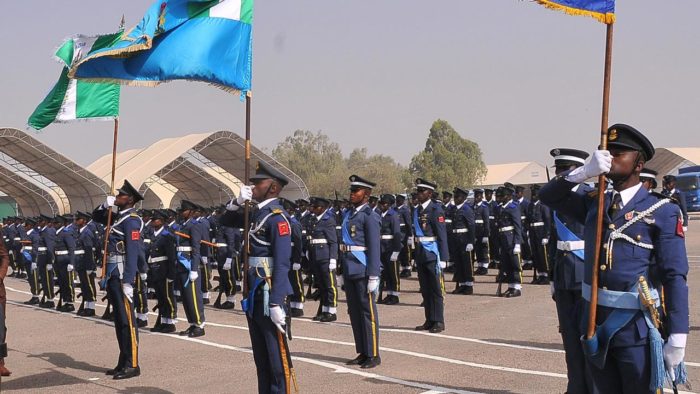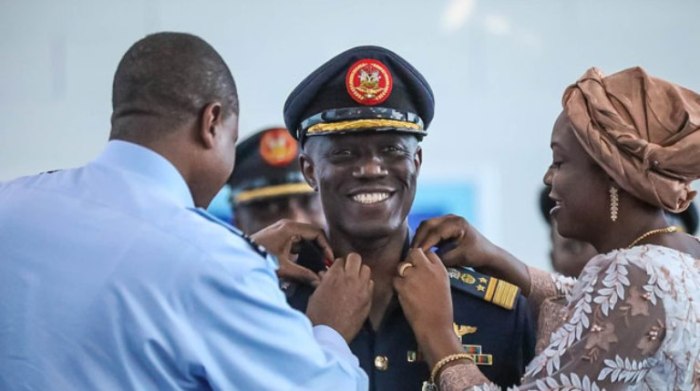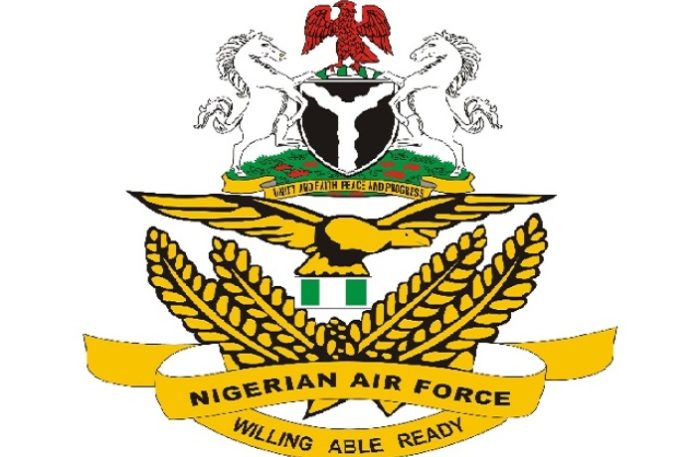The Nigerian Air Force creation was first conceded in 1961, and going through various processes, it was officially established on April 18, 1964. This was done under the Air Force Act of 1962 with the sole intent of becoming the aerial arm of the Nigerian Armed Forces alongside the Army and Navy. Over the years of its existence, the Nigerian Air Force commissioned and non-commissioned officers have been responsible for above-ground warfare and peace-keeping missions on behalf of Nigeria in their distinguished ranks and via daunting operations. In addition to fulfilling national service, these officers have a salary structure that strictly reflects the difference in ranks along the ladder. Also, this applies to the nature and extent of additional monetary packages an officer is entitled to.
Things To Know About the Ranks and Salary Structure of the Nigerian Air Force
The military personnel of the NAF is divided into commissioned and non-commissioned. A detailed list of the NAF ranking is given below with their monthly payable salaries:
Non-Commissioned Ranks
- NAF Recruit – ₦10,237.33
- Trainee/Cadet – ₦39,259.17 to 44,564.42
- Air craftsman/woman – ₦49,412.75 to 53,892.58
- Lance corporal – ₦50,326.50 to 55,832.58
- Corporal – ₦51,980.25 to 58,634.47
- Sergeant – ₦56,443.25 to 69,261.50
- Flight sergeant – ₦69,647.58 to 87,119.54
- Warrant officer – ₦85,193.33 to 101,974.35
- Master warrant officer – ₦148,583.75 to 165,697.12
- Air warrant officer – ₦159,059.83 to 171,793.33
Commissioned Ranks
- Pilot Officer – ₦173,156.25 to 187,159.08
- Flying Officer – ₦187,992.58 to 218,400.08
- Flight Lieutenant – ₦200,336.42 to 232,484.83
- Squadron Leader – ₦213,246.17 to 248,004.33
- Wing Commander – ₦282,573.83 to 324,586.08
- Group captain – ₦310,554.92 to 352,631.58
- Air Commodore – ₦616,388.00 to 677,895.42
- Air Vice Marshall – ₦1,003,245.4 to 1,376,343.6
- Air Marshall – ₦1,113,602.4 to 1,486,451.1
- Air Chief Marshall – ₦1,358,595 to 1,724,283
- Marshall of the Nigerian Air Force (Not ascertained)
It is important to note that these salary ranges are contained in the 2017 Consolidated Armed Forces Salary Structure (CONAFSS) for the Nigerian Military. Also, in most cases, the Nigerian Air Force officers receive the higher end of this salary range.
Members of the Nigerian Airforce Are Eligible For Incentives, Allowances, And Welfare Packages

The Nigerian Air Force has different operational bases located across 17 states, and basically, all activities and administrative operations are carried out from the powerhouse of the base. In this regard, security budgets are distributed for the highly classified to the daily running of the base. The matter of incentives and allowances are made available to officers based on tasks, number of personnel, miscellaneous funds available, and the discretion of the highest-ranking officer involved. Such incentives are not always monetary, as they can be in the form of food items and other essentials.
The NAF is also a dynamic and pro-development military arm that sees that her officers are always in form as the motto says, “Willing…. Able… Ready.” Therefore, it is to achieve such gallant men/women that welfare packages are made available for officers of the NAF. Such welfare packages include the following:
- Healthcare/Medical allowance: This covers all medical needs of officers and their families under the coverage, including routine medical tests/ checks, child delivery, surgery, and others.
- Housing allowance: The base also serves as a residential provision for officers of the NAF.
- Operations allowance (at the site and on transit): When going on an operation domestically or internationally, this package covers those involved. There are allocations for the journey there and while on active duty until the mission is complete or a return is made.
- Study or Course or training allowance: Rising through the ranks and keeping abreast with evolving technologies and tactics, the officers are regularly exposed to courses in different fields from military warfare to humanitarian acts, policies, diplomacy, environment, and many other relevant fields of study. In addition to training fees, the NAF is responsible for the upkeep of officers during their training periods both in the country and in foreign lands.
- Uniform allowance: With the heightened security situations in the country, officers across the Nigerian Armed Forces benefit from the Uniform allowance, which ensures that the men and women of the NAF are always well geared.
- Festive season allowance: The Christian and Muslim celebrations such as Christmas, Easter, and the Salah Holidays attract this category of allowances.
There are also some packages made available to family members in the event of injury or death of an officer.
It is important to note that the sizes of these allowances are dependent on the rank of the receiving officer, educational qualification, and years of service in most cases. Also, there have been reports of non-payment of some of these allowances, an allegation the Federal House stood in to investigate.
How Promotions Are Made in The Nigerian Air Force

As in the Navy and Army, promotions in the Nigerian Air Force are made one rank up at a time. These promotions are made based on performance appraisal, which is conducted for officers across different units and sections at different periods of time. There is a grading system adopted with an aggregation template used to compile present and past performances of the officers to be promoted. This assessment covers physical, mental, and inter-related skills, which are fundamental for an officer aspiring into a new rank in the Nigerian Air Force. The Force tries its best to ensure that this process is as transparent as possible and affords all qualified officers equal opportunity.
In the Nigerian Air Force, educational qualifications are also vital in obtaining promotions. For promotions also, extra courses are undertaken by personnel in various institutions globally and in the country. NAF officers also undertake postgraduate degrees, which add to their viability for promotions in the educational aspect.
Although other details about the promotions may be sketchy coming from the NAF, research has given an insight that includes:
Personal Qualities
- Sense of duty
- Loyalty
- Integrity
- Example
- Presence
- Truthfulness
Leadership
- Power to inspire
- Power to command
- Discipline
- Attitude toward subordinate
Ability
- Determination
- Reliability
- Judgment
- Initiative
Multi-area aptitude
- Creativity
- Organizational contribution
- Management capability
- Achievement
- Job expertise
- Teamwork
How to Join The Nigerian Air Force and Its Requirements
There are different career paths in the Nigerian Air Force, and each has different criteria that enable one to join the armed force. One can join the NAF through any of the following paths.
Regular Combatant (RC)
This commission is only available to young people between the ages of 17 to 21 when entering into the Nigerian Defence Academy, where one undergoes a 5-year training. At the end of the training, graduates are issued with a Bachelor’s Degree and the rank of Flying Officer in the Nigerian Airforce. In addition, this process is available in the Navy and Army.
How to Gain Admission Into the Nigerian Defence Academy for Regular Combatant
- Must be a Nigerian and present Indigene certificate from Local and State Governments.
- Be within the ages of 17 to 21. You have to upload your scanned birth certificate as proof during registration.
- Must be above 1.69 meters tall for males and 1.65 meters tall for females.
- Medically fit and possess a good character.
- Must be single without any legal duty to support any child or individuals.
- Must possess a minimum of 5 credits in O’level.
- Must have not less than 180 in UTME
- Register for the school online.
- Write entrance exams.
- If you get called upon for an interview, avail yourself and make a good performance.
Direct Short Service Commission (DSSC)
This can be applied by civilians and already existing military personnel who are degree holders and are professionals in any field. Training in the commission takes about 6 months, after which candidates graduate and become Flying Officers. The application for this position is made online. For 2021, the registration starts on July 26 and closes on August 30.
Requirements For DSSC
- Must be a Nigerian citizen
- Applicants must be within the ages of 20 and 30 for other applicants and 25 and 40 for medical consultants.
- Applicant must not be married.
- Men must be 1.66m or 5.4 feet tall, while female applicants must be up to 1.63 m or 5.3 feet tall.
- Applicants must issue a local government attestation form and must be signed by a military officer from the same state.
- Must have original certificates.
- Must complete all application forms as issued online.
- Minimum of Second Class Upper Division for degree holders and Upper Credit for HND holders.
- Must have an NYSC Discharge certificate.
- Medical applicants must possess a license for duty.
- This link can be followed to apply
Basic Military Training Course (Airmen/Airwomen)
This training lasts a period of 6 months and is mainly for recruits to become Airmen and Women. The application can be made by people with a Secondary School Certificate, National Diploma, NAMTEB, RN/RM, and NCE certificate, among others. Applying for this, one must fall within the ages of 18 to 22 for Non-Tradesmen/Women and within 18 and 25 for Tradesmen/Women. The registration can be done online in the Nigerian Air Force Portal. Other requirements of height, Nationality, physical and mental health, consent, and attestation, to mention a few, are similar to DSSC and RC listed above.

